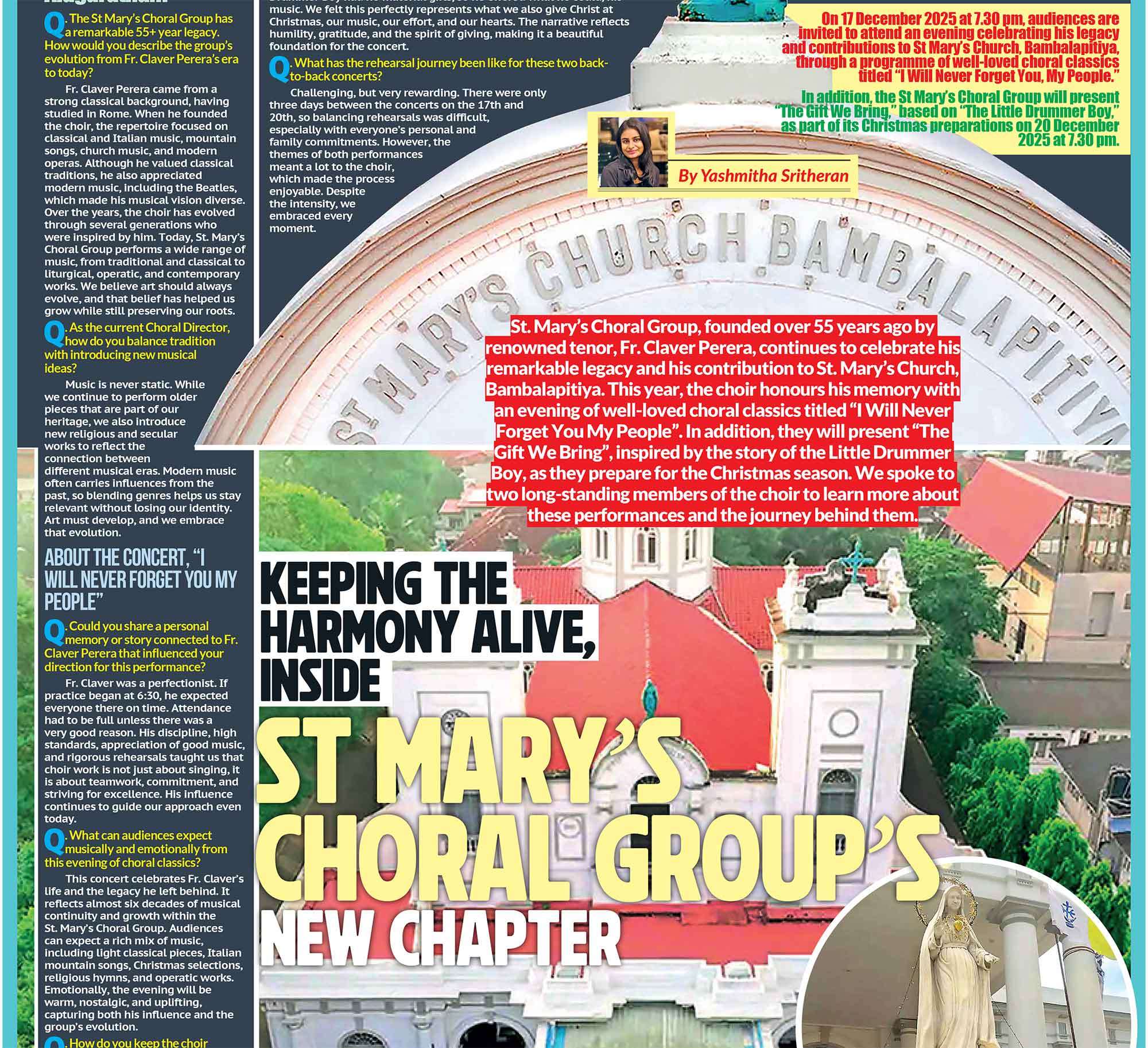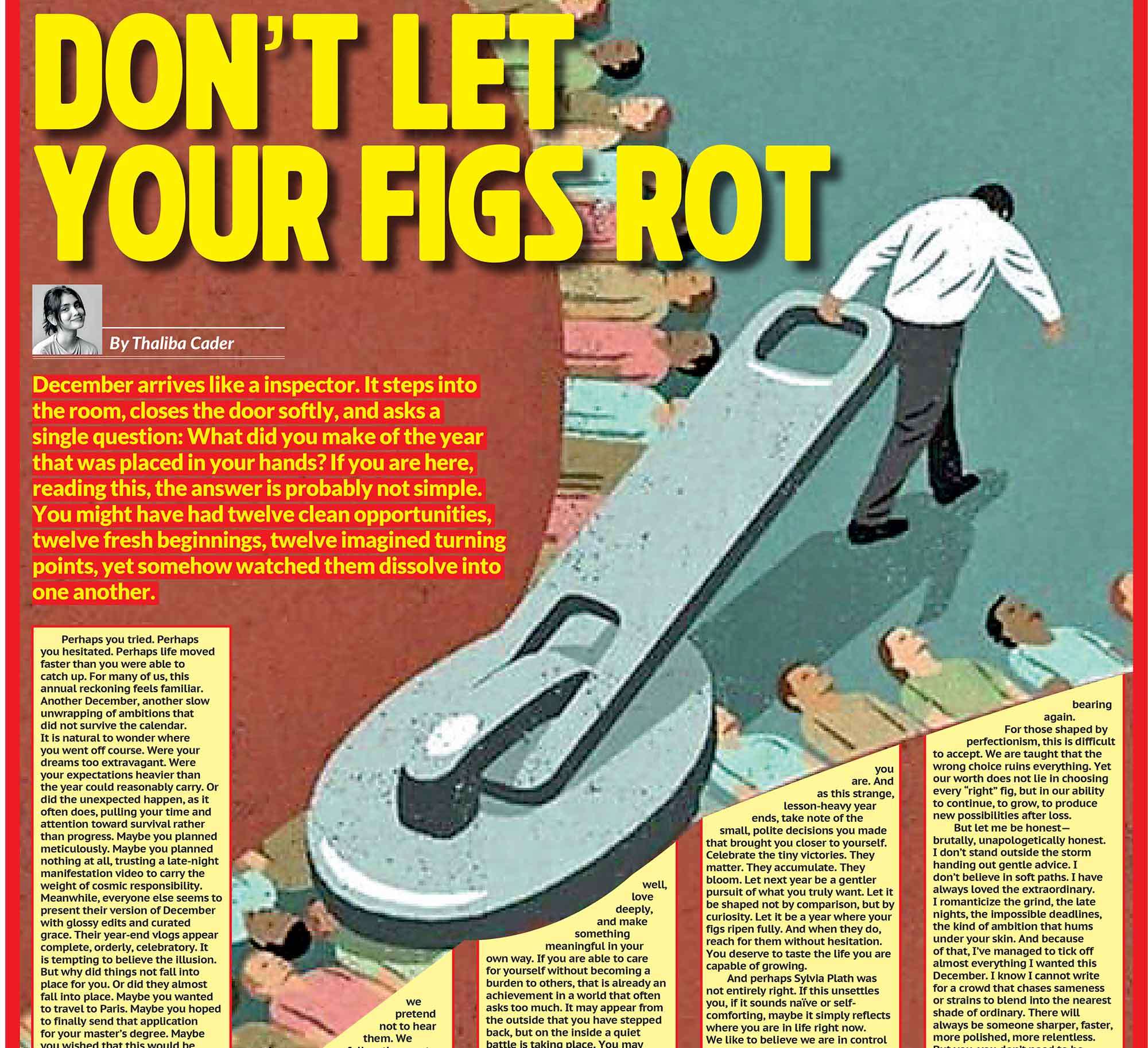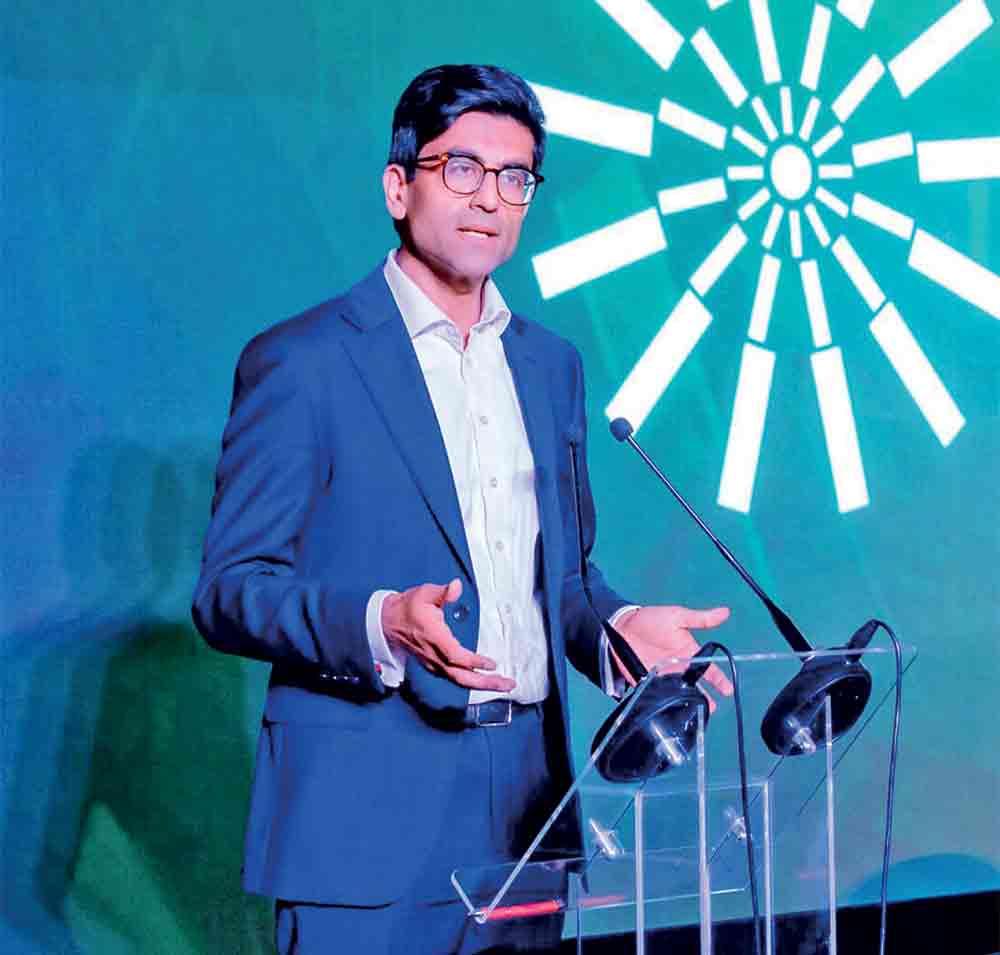
For nearly a quarter of a century, the Asian Achievers Awards have been one of the UK’s most respected platforms for recognising excellence across the South Asian community. From business leaders and philanthropists to artists, sports personalities, and public sector employees, the Awards shine a light on the contributions of a diaspora that has helped shape modern Britain. As the 2025 edition approaches, the backdrop feels particularly charged. Rising economic uncertainty, political polarisation, and the resurgence of far-right rhetoric have created new challenges for immigrants in the UK. Against this backdrop, the South Asian community stands as a powerful example of resilience, enterprise, and cultural vibrancy. At the helm of the Awards is Pratik Dattani, Managing Director, who has steered the platform into a new era of inclusivity and international outlook. In this wide-ranging conversation, he reflects on the Awards’ evolution, their broader societal role, and what the future holds.
Q What makes the 2025 edition of the Asian Achievers Awards different from previous years?
Last weekend, there was a rally of nearly 150,000 mainly white, male, nationalist protestors in central London. They were protesting against the lack of economic opportunity and against immigration. It’s the first time in my time in the UK I’ve ever seen such a swell of support for far-right ideology spill into the streets. When earlier generations of East African South Asians came to the UK in 1972 after being expelled from Uganda and elsewhere, they faced a great deal of racism. But today, those families are amongst the richest in the UK. At one stage a few years ago, the British Cabinet featured at least three such East African Indians. The Awards happen in this wider context, for the first time in a generation. We’re the richest, most law-abiding group of immigrants in the UK, contributing positively to society, culture and economy. But we need to shout even louder about our accomplishments, to show the wider public that immigrants like us create jobs, add value, and make Britain better.
Q What are the main objectives of the Awards this year?
Britain faces political and economic headwinds from multiple sides, but South Asians have again shown their resilience and ability to contribute to building the nation. Our winners highlight the very best of how we contribute to Britain. For the first time, several of our shortlisted candidates are prolific entrepreneurs who built businesses in the UK but recently emigrated to Dubai. This highlights a risk to Brand Britain that policymakers need to urgently address. I want to show both the South Asian community in the UK and the wider public how lucky the UK is to have such innovative, entrepreneurial, law-abiding and sincere diaspora. But aside from these loftier goals, the evening is also about having a good time. Business happens when people in the room talk to each other over good food, entertainment and cocktails. If this platform sparks new ventures, funding opportunities or investments, that’s a fantastic outcome.
Q How do you balance celebrating tradition with showcasing modern South Asian achievements in the UK?
It is certainly a balancing act. Today’s generation of successful South Asians reached their positions in business, politics, law and the arts because of the sacrifices earlier generations made. Many came as refugees or economic migrants, but they built the wealth and infrastructure that benefit today’s generation. So, the event is about recognising and being thankful for what has gone before, while also looking ahead at the needs of today’s generation. For example, we serve cocktails all evening now and welcome some of Britain’s most prominent South Asian social-media influencers; neither of which happened a few years ago.
Q What impact do you hope the Awards will have on younger generations of South Asians in Britain?
Inspiration and role models are vital. When I was growing up, I didn’t have a mentor or community leader I could learn from when starting my business and community activities. We try to identify and acknowledge real gems within our community, not just in business, but in sport and the arts too. Representation helps young people believe they can achieve the same.
Q The Awards have historically focused on India and Pakistan; why was it important to broaden the scope to include Sri Lanka, Bangladesh, Nepal, and the Maldives?
It is hugely important. In Britain, South Asian communities often stick to silos based on language, caste or other factors. We want to identify changemakers and leaders across the whole region. There are incredible Sri Lankan entrepreneurs and artists, for example. Indhu Rubasingham MBE, now Artistic Director of the National Theatre, is of Sri Lankan Tamil heritage. Prof. Selva Pankaj, who came as a student, has built a global higher education business. Their stories are powerful reminders that South Asian achievement is broad, diverse, and interwoven with Britain’s success.
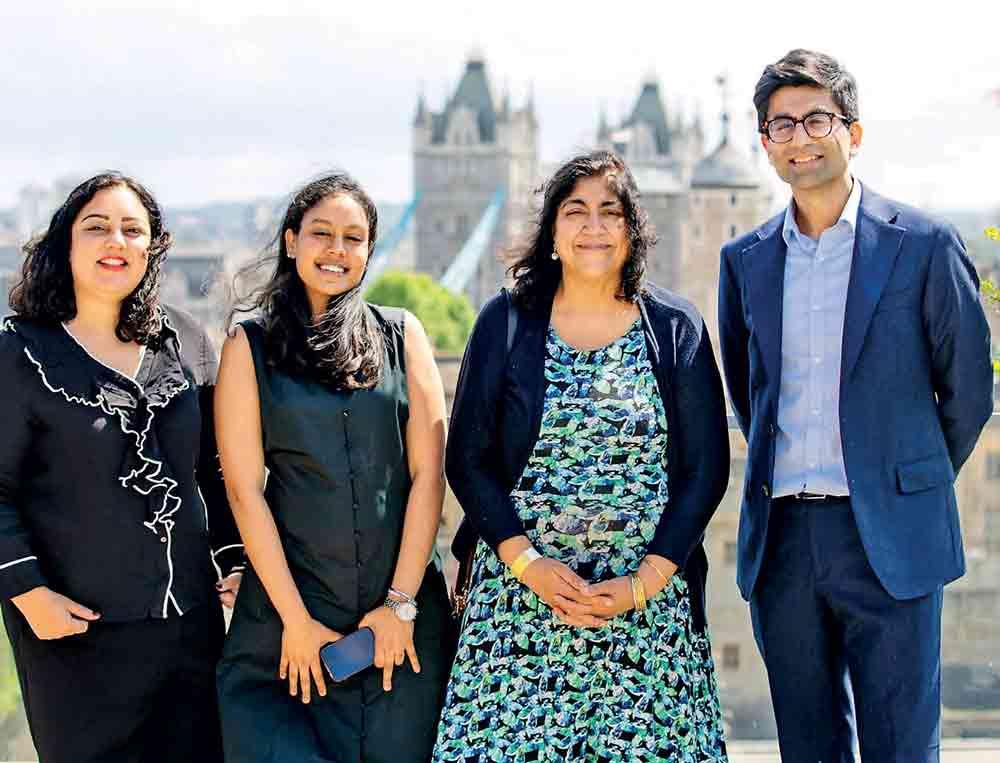
Q What specific steps have been taken to ensure inclusivity across the wider South Asian region this year, and in future editions?
Representation on stage is important. Our hosts this year reflect diversity: Nitin is a Gujarati actor, Anila a Punjabi Sky News presenter, and Nileeka a Sri Lankan dance choreographer. Our performers also embody variety: Raghav is a global singer living in Toronto, Eshaan is of mixed Bangladeshi and Pakistani heritage, and Klodi is Polish. In selecting our shortlist, the judges focus heavily on diversity. We are keen to ensure a fair gender and nationality representation across the board.
Q How are you identifying and reaching out to achievers from smaller South Asian diaspora communities that are often overlooked?
It’s tough to ensure consistently. More established South Asian communities tend to come from professional backgrounds with large businesses and online presence. Newer migrants often lack exposure to events like this. So, we must go to grassroots level to identify them. Last year, for instance, we collaborated with HSBC for South Asia Heritage Month to amplify diverse voices and think tank Bridge India helps significantly with outreach. Cost is another barrier, if you live outside London, train fares and overnight stays can be expensive. We often invite grassroots nominees on a complimentary basis to ensure inclusivity.
Q Do you anticipate new award categories to better reflect contributions from diverse South Asian backgrounds?
Absolutely. More South Asians are excelling in pharmacy, technology startups, arts, music and politics. As their contributions evolve, so will our categories. We must adapt to reflect the dynamism of our communities.
Q The Awards have a rich history. What are some standout winners or moments that left a lasting impact?
One that stands out is that, from the Sunday Times Rich List, almost every South Asian has attended our Awards at some point. That’s unique, no other platform in the UK can make that claim. It speaks to the respect the Awards command.
Q How has the Awards ceremony evolved since its inception, in terms of size, scale, and influence?
The first edition hosted fewer than 100 people. Today, we regularly welcome Britain’s wealthiest families, Prime Ministers, and the Mayor of London. What sets us apart is merit. Many other award ceremonies in London operate entirely on a commercial basis, without a jury. Our winners are chosen on merit alone, which has safeguarded our credibility. That’s why the Awards have stood the test of time.
Q Looking back, how has recognition of South Asian talent in the UK shifted over the decades?
Support from the Prime Minister’s Office has been consistent for years, despite the political turbulence of five Prime Ministers in a decade. This year, for the first time, the leaders of the three biggest parties, Labour, Conservatives and Liberal Democrats, have all offered messages of support. That mainstream recognition marks a significant shift.
Q What role do partnerships, corporate, community-based, or media, play in making the Awards possible?
Partnerships are vital. The event was started by the Gujarati newspaper group behind Asian Voice and Gujarat Samachar. Their reach into the community was essential for growth. Likewise, Lyca Radio, the UK’s largest South Asian radio station, remains a huge supporter. Many leading journalists at the BBC, Sky and elsewhere started their careers at these outlets, which creates a continuity of support.
Q Are there any new collaborations for the 2025 edition that reflect the more inclusive approach?
Yes, this year we’re working with newer community groups across the Sri Lankan, Nepali and Bangladeshi diasporas. We’ve also engaged more with British universities to identify rising South Asian talent. These collaborations ensure we don’t just spotlight established figures but also emerging voices.
And importantly, we are also collaborating with you and Wijeya Newspapers Limited in Sri Lanka, through your publications such as the Daily Mirror and The Sun. This is a vital partnership because it helps us engage the wider Sri Lankan diaspora in the UK, encouraging participation from a community that has such a rich history of cultural and professional achievement. It’s these kinds of bridges, between community organisations, media partners and grassroots networks, that ensure the Awards remain truly representative of the diversity and dynamism of South Asians in Britain.
Q How do you work with community organisations to make sure the Awards represent the broadest spectrum of South Asian talent?
Grassroots organisations are our eyes and ears. They help us find unsung heroes who may not have visibility in mainstream networks. We consult them regularly, and many serve as nominators or advisers in the judging process.
Q What is your long-term vision for the Asian Achievers Awards over the next ten years?
The future lies in international expansion. Success stories of South Asians aren’t confined to Britain. Sri Lankans are excelling in France, Sindhis in Spain, Gujaratis across East Africa. Many of these networks connect through hubs like Dubai. Our long-term vision is to tell these global stories.
Q Could you see the Awards expanding beyond the UK to become a global celebration of South Asian excellence?
Absolutely. The UK will remain our anchor, but the diaspora is global. Showcasing excellence in multiple geographies is the natural next step.
Q How do you measure success, not just in attendance or visibility, but in real-world impact?
Success is when a deal is struck over drinks at our event, when a young entrepreneur finds a mentor, when a wealthy individual donates to our charity partner, or when a startup gains recognition through us. These tangible outcomes matter more than numbers on a page.
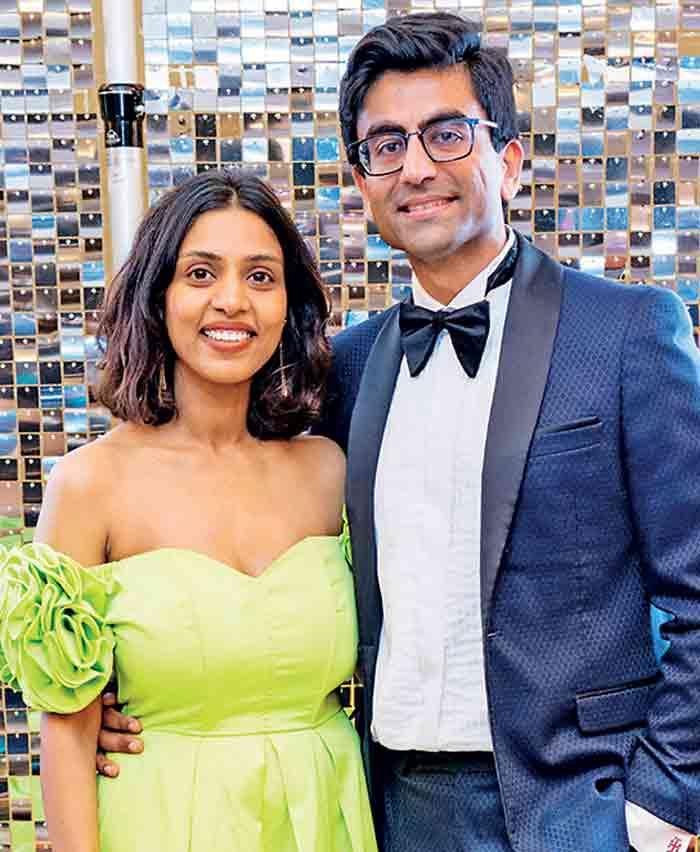
Q In what ways do you see the Awards contributing to stronger cultural, professional, and business ties between South Asian countries and the UK?
By spotlighting stories of enterprise and achievement, we show the UK government and businesses the value of these ties. We also give South Asian nations a platform to connect with British policymakers, fostering deeper relationships in trade, education and culture.
Q As Managing Director, what has been your most rewarding moment leading the Awards?
Honestly, it’s something small. I don’t think much about what I wear, but I’m always struck by how much effort attendees put into their outfits. The colours, jewellery and dresses light up the room. It’s a reminder that the Awards aren’t just about recognition, but celebration.
Q What message would you like to share with young South Asians who may one day be recognised on the Asian Achievers Awards stage?
When the first waves of South Asian immigrants came to the UK in the 1960s, they faced racism and hardship. They kept their heads down, worked hard, avoided debt, and built lives for future generations. We owe them gratitude. The next generation must respect that journey and build on it. Whatever you do, do it to the very best of your ability. Make your parents proud and make your country even prouder.









